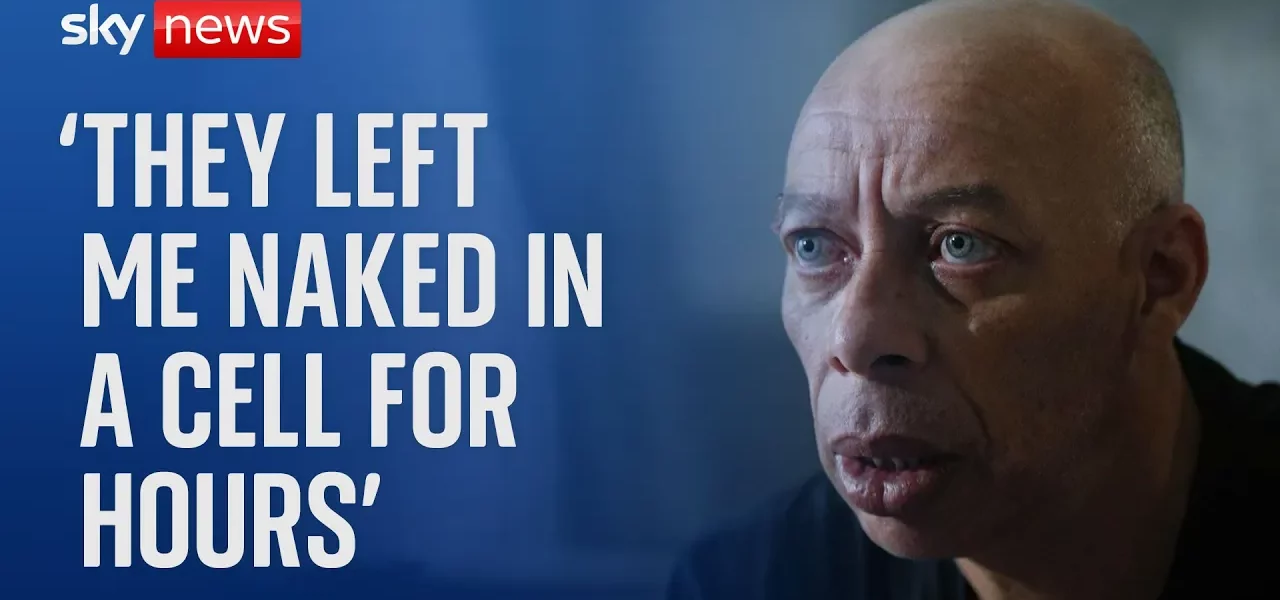When Do Police Have the Right to Smash Your Door In? | Mark Dove’s Story

This article delves into the complexities of police authority, focusing on the inquiry surrounding Greater Manchester police’s custody practices, as seen through the experiences of Mark Dove. Explore the events that led to the investigation and the broader implications for law enforcement accountability.
Introduction
The interaction between the police and civilians can often raise questions about authority, legality, and human rights. This is particularly true in the case of Mark Dove, whose experiences with Greater Manchester police have ignited a significant inquiry into their custody practices. In this article, we will explore the circumstances surrounding Dove’s encounters with law enforcement, the implications of police authority, and the ongoing inquiry that aims to address these issues. Understanding the balance between public safety and individual rights is crucial in evaluating police conduct, especially when it comes to actions such as forcibly entering a home or conducting strip searches.
The Incident That Started It All
Mark Dove’s ordeal began 18 months prior to the police smashing his door down, stemming from a family dispute that escalated into an arrest. The arrest was reportedly due to threats of criminal damage made against him. Dove claims that the police treated him differently due to his race, raising important questions about bias and discrimination in law enforcement practices.
Details of the Arrest
During the arrest, Dove expressed that he was not the main aggressor, indicating that the situation was mismanaged by police officers. His assertions were documented through a doorbell camera, which captured the events leading to the police action.
Concerns About Racial Bias
The implications of racial bias in policing practices are profound. Dove’s claim that he was treated differently due to his ethnicity highlights a troubling aspect of law enforcement that requires scrutiny:
- Instances of racial profiling
- Disparities in treatment during arrests
- Public perception of police fairness
The Aftermath of the Arrest
Upon arrival at the police station, Dove faced further challenges. He attempted to lodge a complaint about the treatment he received but found the process confusing and unhelpful. This showcases a significant gap in the support systems available to individuals in custody.
Strip Search Experience
Mark was subjected to a strip search during his detention, an experience he described as humiliating. Initially placed in anti-rip garments, he was later told they had been torn, leading to his being left naked in a cold cell:
- Duration: He remained naked for eight hours, with no access to proper clothing or bedding.
- Conditions: The cell was freezing, and despite requesting blankets, none were provided.
- Self-Management: To cope with the conditions, he resorted to using the hot water tap for warmth.
The Broader Context of Strip Searches
A Sky News investigation previously uncovered troubling practices regarding the strip searching of women in police custody. Mark’s subsequent experiences have drawn attention to the need for reform in how such searches are conducted:
- Emphasis on dignity and respect during police procedures
- Review of policies governing searches, particularly for vulnerable individuals
- Potential impacts on mental health and self-esteem from degrading treatment
The Inquiry into Police Conduct
The inquiry led by former victims commissioner Dame Vera Baird began with a focus on the treatment of women in custody but has expanded to include cases like Mark’s. The investigation aims to establish whether Greater Manchester police acted within their legal rights during their interactions with Dove.
Key Questions for the Inquiry
Several critical questions arise in the context of this inquiry:
- Did the police have sufficient grounds to forcibly enter Dove’s home?
- Were the actions taken during the arrests justified and lawful?
- Is there a pattern of unlawful conduct by the police in similar scenarios?
Ongoing Investigations and Community Response
As the inquiry unfolds, Greater Manchester police have stated their commitment to engaging fully with the process. They acknowledge that there are cases within the inquiry that reflect poor standards and practices, which highlights the necessity for accountability and reform within law enforcement agencies.
Conclusion
Mark Dove’s experience serves as a critical case study in the ongoing discussions about police authority and accountability. The inquiry into the practices of Greater Manchester police not only seeks justice for individuals like Dove but also aims to foster systemic change within law enforcement. As the investigation continues, it is vital for the community to remain engaged and informed about the outcomes, ensuring that police practices align with the principles of fairness and respect for all individuals. For those interested in further developments and related issues, consider exploring our articles on police accountability and community rights.
“`




